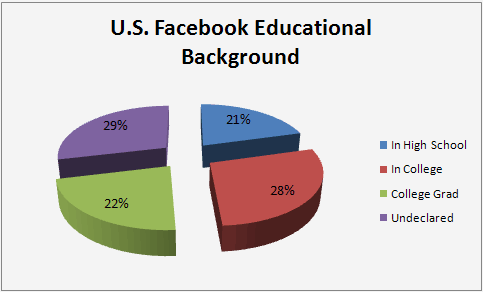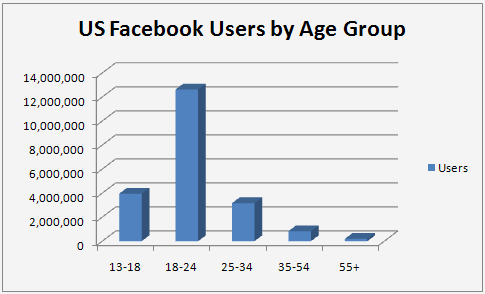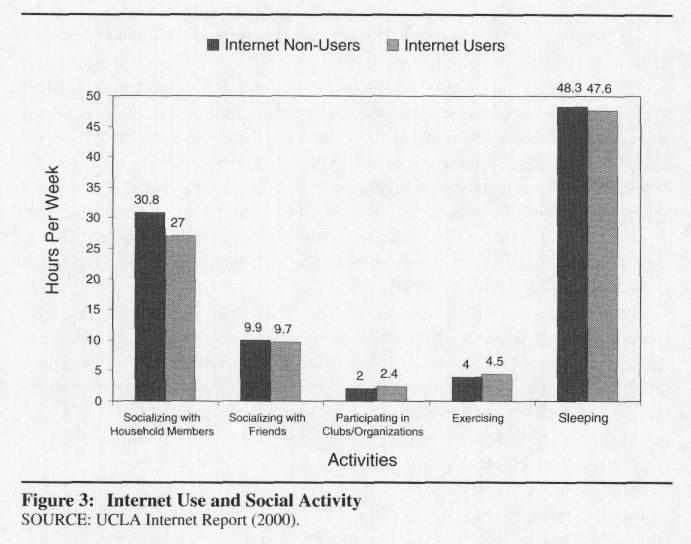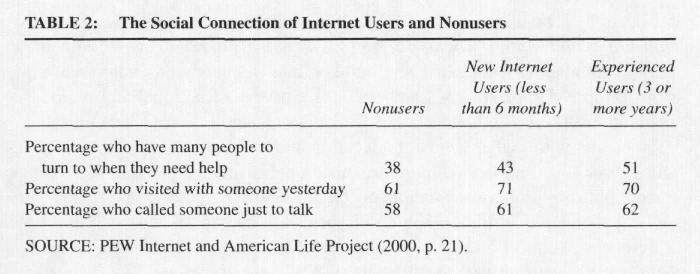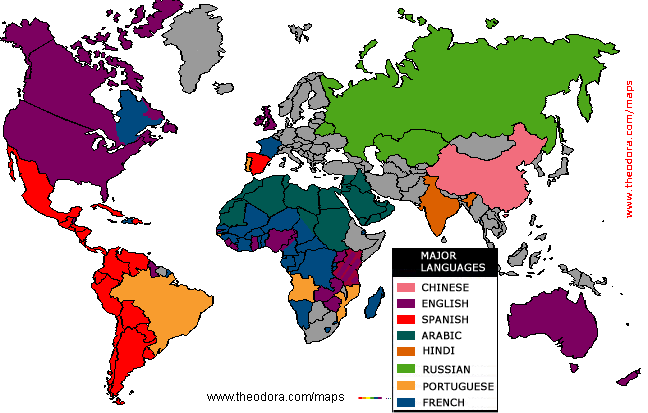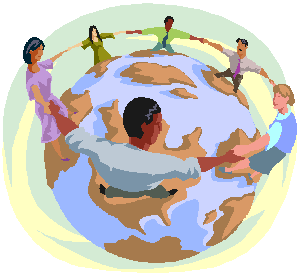E-pals or Real Pals?
Contents
- 1 The Issue of Online Social Networking
- 2 Life and Times of Facebook, MySpace, and eHarmony (Long)
- 3 Who uses it and for what? (Brittany)
- 4 Positive and Negative Aspects of Computer-Mediated Relationships (Taija)
- 5 What will Happen to Our Social Skills? (Danielle)
- 6 Global Implications of Online Networking (Brandy)
The Issue of Online Social Networking
Is it better to have E-Pals or Real Pals? Do the various social networking sites availible cause the decline of traditional interpersonal skills and withdrawl from the 'real-world', or do they offer benificial alternatives to social interaction and help individuals to broaden thier social lives?
The implications of this technology on today's society as well as globally is examined briefly herein, with special focus on the development of new relationships online and the social networking sites Facebook, EHarmony and MySpace.
Group Name
CPSC 203-03 T20, Group 1; TA: Ryan Moniz; Topic: E-Pals or Real Pals?
Group Members
Brandy Bushfield, Danielle Groeneveld, Brittany Marsh, Long Tran, Taija-Rai Robinson.
Life and Times of Facebook, MySpace, and eHarmony (Long)
So you are wondering... "How do these websites come to such popularity in such a short time?" Well I cannot answer that for you, but what I can do is tell you how they came about. Firstly, we have Facebook, something that seems like a social phenomenon that first made way in 2004 founded by a former Harvard student (dropped out) that goes by the name of Mark Zuckerberg. Facebook was launched in February of 2004 from the dorm room of Mark. Within 24 hours of the launch, Facebook had accumulated 1,200 users from the student body at Harvard and by the end of the month nearly half of the campus had signed up. Soon after, this blooming creation had made its way over to other colleges in Massachusetts, Stanford, and the remaining Ivy League schools. Today Facebook has accumulated upwards of 66 millions users. In the earlier days, Facebook was only open to students from certain colleges, then anyone with a valid university e-mail id would be able to join, today facebook is open to all. Recently Forbes.com has named Mark Zuckerberg the youngest self-made billionaire having a net-worth of approximately 1.5 billion dollars!
Another social networking website that goes by the name of MySpace has also been sweeping the world over. Being Facebook's only real rival, debuting a few months earlier gave it its upperhand when it was launched in August of 2003. With a team of Brad Greenspan (eUniverse's Founder, Chairman, CEO), Chris DeWolfe (MySpace's current CEO), Josh Berman,and Tom Anderson (MySpace's current president) they engineered MySpace to the forefront of the social networking race. It is more known to jump-start careers of some of the artists we know today for example, Soulja Boy Tell 'Em. MySpace is owned by News Corporation with its headquarters located in New York.
Thirdly, the most popular online dating & relationship website called eHarmony was launched in August of 2000 in Pasadena, California by Dr. Neil Clark Warren, an expert in psychology and relationships. eHarmony's primary aim was to seek single individuals, with the aid of their 29 Dimensions, and find them their "perfect" match; their methods claim to be scientific and based upon Christian principles. Initially in 1999, eHarmony was a site with an online survey to allow couples in marriages or relationships to evaluate themselves and upon completion of this survey the couple receives a "marriage profile" from Dr. Warren. The funding to launch the website was issued by Fayez Sarofim & Co. with the amount of $3 million. eHarmony is now the Internet's fastest growing dating service.
links
- Facebook Origin And Expansion: An Idea That Clicked So Well!
- A brief history of Facebook
- Mark Zuckerberg
- #785 Mark Zuckerberg
- MySpace
- Soulja Boy
- eHarmony Review
- eHarmony Company Overview
- History of eHarmony
- eHarmony
Who uses it and for what? (Brittany)
Owning a computer was once considered a luxury, but in today’s day and age it is considered a necessity. The world has progressively developed from the industrial revolution to the e-commerce revolution.Not only has business become dependant on the fast pace technologies, but so has our relationships for all ages. Only recently has society been introduced to the websites known as Facebook and MySpace, but has had a rapidly growing response.The age demographic ranges from 13-55 corresponding with the use of websites such as facebook, MySpace and eharmony. The popularity among this age group is mostly is due to the fact that today’s younger generations are more exposed to technologies as well as more dependant. The internet is used and trusted for online banking, education, work, and more increasingly, social life. Communication among colleagues, friends and family is quick, safe and effective which is one of the many reasons these websites are becoming increasingly popular. Currently there are over 67 million active Facebook users, and 185 million MySpace users. Having a large diversity of users, Facebook demographic statistics show that the fastest growing users are between 25-34 years old. MySpace users range from 14 to 34 years old, with 350,000 new registrations a day. Both used for the same purpose, but marketed in different ways; "Facebook is cleanly designed and has a classy, upmarket feel to it. People tend to use their real names on Facebook. They also declare their sex, age, whereabouts, romantic status and institutional affiliations." Where as Myspace seems to appeal to a younger generation and doesn’t have the “classy, uppermarket feel to it” although they both share the similar characteristics, and are used to:
-Create groups, share ideas
-Create Advertisement opportunities
-Organize social gatherings
-Meet new people
-Conduct surveys
-Games
-Contests
-Share pictures or files
A picture:
- Countries Facebook Users
- United States 20,897,580
- Canada 7,759,540
- Australia 1,819,020
- Turkey 1,035,960
- Sweden 1,005,300
- Norway 953,240
- South Africa 649,540
- France 562,840
- Colombia 486,120
- Mexico 453,100
- Egypt 434,620
- India 338,900
- Germany 317,220
- Singapore 262,500
- New Zealand 244,220
- United Arab Emirates 217,680
- Spain 213,440
- Lebanon 184,320
- Ireland 153,080
- Israel 152,560
- Italy 142,480
- Malaysia 140,560
- Saudi Arabia 130,960
- Pakistan 130,820
- Netherlands 129,680
- Switzerland 128,360
- China 113,700
- Japan 105,700
- Korea, Repubic of 55,000
- Dominican Republic. 37,740
Links:
http://scottelkin.com/archive/2007/05/11/Myspace-Statistics.aspx
http://www.Facebook.com/press/info.php?statistics
http://venturebeat.com/2007/10/29/cookie-tracking-how-facebook-could-be-worth-100-billion/
http://www.techcrunch.com/2007/06/19/is-myspace-worth-12-billion/
http://www.time.com/time/magazine/article/0,9171,1655722,00.html
http://www.emergence-media.com/2007/11/facebook-demographic-user-statistics-fun/
Positive and Negative Aspects of Computer-Mediated Relationships (Taija)
The formation and maintenance of relationships online has been a rapidly growing trend for well over a decade. Whether through email, Instant Messaging, chat-sites, news groups or other online communication networks, the formation of ‘e-pals’ is a widely growing and highly controversial subculture in today’s society. Though it is not uncommon for individuals to form new relationships (including but not limited to acquaintances, friendships and romantic relationships) online, the internet is also a useful and widely utilized tool for maintaining established relationships (among family, friends and coworkers, for example).
The prevalence and value of online communication networks and applications should certainly not be underestimated. However, as this trend has grown, great debate has arisen among professionals as to the benefits and consequences of this virtual interaction. Despite the initial social stigma of online relationships and bad press involving internet predators, online social networking continues to increase and current research tends to uncover a variety of positive outcomes for those individuals connected to others online. It is nevertheless important to weigh the possible pros and cons of engaging in social activities online.
(Note: The following list is a reflection of possible positive and negative outcomes/experiences and is by no means a conclusive determinant of all online relationships, merely a collection of commonly cited pros and cons gathered by various research studies which can be found in the bibliography section)
Possible Pros
• New relationships can be started quickly, easily and conveniently
• Anonymity of medium encourages individuals to express themselves and to be more open, candid and truthful in their communication as the risk of reprisal is lessened
• Established relationships can be easily maintained, leading to stronger social connections with friends and family
• Individuals suffering from physical limitations or even extreme shyness (or other inhibiting factors) are able to form and maintain relationships and increase their social support system
• Self-esteem may be boosted as traditional social pressures and boundaries are lifted
• Individuals can seek social support easily (for example, chat rooms for cancer patients, or others suffering from a disease or social problem, etc.) from others who understand and emphasized with their situation
• Anonymity of medium may lead to increased self-disclosure (sharing of personal information such as beliefs, values and emotions) which lends greater depth and intimacy to the online relationship
• Anonymity of online relationships offer participants a feeling of safety from social judgement that may be present in face-to-face interactions
• Participants have a greater control in their relationships and the progression of these relationships
• Individuals with stigmatised identities are able to interact more freely with others without fear of intolerance or hostility
• People are able to judge each other based on common values and personality traits as opposed to physical appearances
• Physical appearance holds less weight in an online relationship (its formation and maintenance) than in a face-to-face relationship, which may indicate that the relationships are less superficial
• Individuals who are too busy to engage in regular face-to-face interaction are given an easy and efficient alternative to maintain their established relationships and form new ones
• Potentially less dangerous/risky than face-to-face interaction as individuals have more opportunity to get to know one another and make more accurate judgements on each others personality and intentions
• Less dangerous/risky because individuals meet in a ‘cyber world’ as opposed to the ‘real world’ and can screen strangers more easily online then one could in, say, a bar scene, where risk of personal harm is more immediate and situational-based
• Potentially fewer errors in judgement in the ‘cyber world’ (for example, there is likely no impairment caused by drugs or alcohol when meeting people online)
• Offers individuals an opportunity to meet and get to know others around the world, as the internet is not bound by geography as face-to-face interactions are
• A wider variety of people can be met then is usually possible through traditional methods
• People can be more selective in those with whom they socialize due to the greater selection and variety
• People can interact with others who share similar interests and hobbies easily
• Participants have the opportunity to form stronger interpersonal relationships by more easily locating those with whom they share similarities
• The range, quality and quantity of an individuals relationships can be greatly increased, lending the individual a wider and more diverse social support system (note: having a stable social support group is important for an individuals ability to deal with major life events and cope with stress and other ailments more effectively and has also been linked to better mental health)
• Terminating relationships/rejection may be easier and less damaging than in face-to-face relationships as the online relationship lacks the visual elements and proximity of face-to-face rejection that generally amplify the emotional distress
• Individuals can always meet friends/romantic-interests found online in the ‘real world’ and continue their relationship through face-to-face interaction as well as the internet (this could even result in life-long friendships or marriage)
• Because visual elements such as body language, gestures, eye contact and appearance are absent, individuals may feel more at ease in social situations
• Since the medium is heavily reliant on the written word, individuals may limit/avoid miscommunications, etc., as they have time to rehearse, rewrite and even cool-off before they respond to another individual online, leading to fewer conflicts and healthier interpersonal communication
• Individuals may even be able to improve and refine their social skills through greater opportunities for practice and exposure to a wider audience
• Individuals may be able to develop more tolerant views of others’ differences as they are exposed to them
Possible Cons
• Decline of traditional face-to-face interactions
• Decline of valuable social skills necessary for effective face-to-face communication
• Possibility of encountering ‘Internet Predators’, ‘Cyber Bullies’ or other potentially dangerous individuals
• Lack of visual cues (ex. Body language, hand gestures, facial expressions) may lead to miscommunication
• Anonymity of the computer medium may make the creation of false identities easier
• Anonymity of medium may lead to deception and negative or stressful online communication with unscrupulous individuals
• Risk of computer dependency, or ‘internet addiction’
• Greater risk of disclosing personal information which may lead to the individual being taken advantage of, or even identity theft
• Risk of disinterest in traditional means of communication, decrease in traditional social life or withdrawal from traditional social activities in favour of internet-based social activities
• Potential loneliness stemming from dependence on internet-based relationships and withdrawal from face-to-face interactions
• Physical consequences stemming from lack of physical social activities or exercise in favour of greater time spent on the computer (ex. Obesity)
• False sense of intimacy may develop, making future face-to-face interactions with the individual met online uncomfortable
• Possible miscommunication between individuals regarding intensity and validity of online relationship
• Potential for rejection by a large number of individuals (more exposure to people than one may normally encounter through only face-to-face interactions, leads to higher possibility of rejection)
• Possibility of never actually meeting online friend/acquaintance/romantic-interest leading to feeling of distress/frustration and lack of relationship fulfillment
• Lacks the proximity and physical/geographical closeness of face-to-face interactions
Links
Bibliography
- Reconfiguring Friendships: Social Relationships and the Internet. By Corinna Di Gennero and William H. Dutton. Information, Communication and Society Academic Journal (2007): 10(5).
- Mediated Relationships. By Micheal Hardy. Information, Communication and Society (2004):7(2):207-222.
- Computer Mediated Communication: Social Interaction and the Internet. By Laura Lengel. Thousand Oaks, CA. Sage Publications Inc. (2004).
- Online Communication: Linking Technology, Identity and Culture. By Andrew F. Wood and Mathew J. Smith. Mah Wah, NJ. Lawrence Erlbaum Associates, Publishers (2001).
- Who Looks for Romance on the Internet?. By Patti Valkenburg and Peter Jochen. Conference Papers- International Communications Association (2005) 1-25.
- Predictions of Relationship Satisfaction in Online Romantic Relationships. By Tracy Anderson and Tara Emmers-Sommer. Communication Studies Journal (2006): 57(2):153-172.
- Double-Click: Romance and Commitment Among Online Couples. By Nicole Ellison. Journal of Communication (2007): 57(2):408-409.
- Psychology Applied to Modern Life: Adjustment in the 21st Century, 8th edition. By Wayne Weiten and Margaret A. Lloyd. Thomson-Wadsworth Publications (2006).
What will Happen to Our Social Skills? (Danielle)
No question the Internet will have implications on our ability to communicate in the real world after spending so much time in the cyber world. It is true that we can meet more people through the internet. People we meet in chat rooms or through social networking sites are called "cyber pals". There is an incredible range of opinions about whether these people we meet have a good or bad effect on any individuals. For example, a 1998 study by Kraut initially found that increased internet usage contributed to depression and loneliness in people that were already shy to begin with. Kraus' reasoning was that tyhe more time people spent on the Internet with their cyber friends, the less time they had to practice their face to face interactions. This caused these shy individuals to feel incompetent in real life situations. This seemed to make sense. However, when Kraus completed a follow up study, he found that as people started to understand the internet and how it works, it began to have a positive effect on the participants in the study. They were able to maintain long distance relationships with relatives and these relationships were deepened in a way that wouldn't have been possible without the Internet. The fact that one researcher had his mind changed so radically shows the contraversy surrounding whether the sociological effects are positive or negative. There are a couple main studies whose findings are in extreme contrast to each other.
IAS Study
The biggest idea in this study was that people have limited time and the internet takes up the valuble time that people have that they could be spending socializing:spending time with family and friends. They used a questionnare that asked people to extimate just how much time they spent on the internet in a week. Then they were asked a bunch of questions on how much time they spent out of their home with friends, talking on the phone, and spending time with family. The IAS researchers found that as the number of hours spent on the internet increased, the less time was spent doing what was classified as social activities. From the people who used the internet for more than 10 hours, 16% reported spending less time with their friends, 27% reported talking on the phone less, and 13% spent less time outside their house. This may seem that people are becoming less sociable. But another study makes the argument that while people may be spending less time doing conventional social methods, they could still be socializing on the internet.
SDF Study
This study found the complete opposite of what the IAS study found. Authors of the PEW study, an offshoot of the SDF study wrote "This survey provides clear evidence that e-mail and the web have enhanced user's with family and their friends-results that challenge the notion that the Internet contributes to isolation."As seen in the graph, the SDF study took 5 activities: socializing with family members, socializing with friends, participating in clubs, excercising and sleeping, and compared the amount of time spent doing these activities between internet users and non internet users.They found that there was only a 4 hour difference between internet users and non users, which is concluded to be not a huge difference. Therefore, the SDF study concludes that the internet and social networking online is not a huge factor in a loss of sociability.This seems to be fine, but there is one problem. The SDF study did not ask how much time was spent on the internet by the users. they simply pitted users against non users, and some people are more extreme in their internet use than others. For example, some people only spend two hours a week, others 15. This taints the results.
PEW Study
This study is extremely rigid in their views that the IAS study is completely wrong, and that the internet causes an increase in sociability, not just a neutral stance like the SDF study seems to take. The PEW researchers believe that social networking sites create more opportunities for social interaction. People can talk to friends and make new friends, even if they live miles away. They also used a survey, and found that 51% of experienced internet users had someone to turn to when they need help, as opposed to 38% for nonusers. However, since they found that the people who use these sites tend to be younger and of higher status, it makes sense that they would report to have more friends. So these findings cannot be completely relied upon either.
Sources
Global Implications of Online Networking (Brandy)
The increasing expansion of online social networking can no longer be denied. Sites like Facebook, Friendster and MySpace have recently reported member increases high into the millions since this time last year. These increases represent growth percentages as high as 270%. Although some sites are more popular in specific countries than others, the overall membership growth is widely spread across the globe. This only confirms the reality of "E-Pals" and online friendships as more than a trend.
The effects of these online relationships from a personal level have already been discussed above, but what of the global effects? How does the vast and growing experience of online socialization affect the global community? Online networking affects numerous aspects of our lives in both positive and negative ways.
Some examples include the evolution of language, increased global awareness, and new freedoms and limitations.
Evolution of Language
As social networking has gone global, so too have many online relationships. The global network allows for a much lower pressured environment to meet and socialize with other people of varying ages and backgrounds. These variations in speaker background and lack of control over the type of speech used can allow for some very interesting effects on language.
• When there is little or no control over the type of language used online certain types become more prevalent. One example is slang or street talk which is often not allowed at school or in the home. This prevalence often forms a habit which becomes evident as much outside the online network as inside. New slang terms and phrases are picked up from across the continent and around the world.
• Another huge step in language evolution began with desire for speed in instant messaging. The abbreviations of word's like "can not" int' "can't" was not sufficient anymore. Entire phrases are now shortened into just a few letters as part of instant messaging lingo. Some examples include ROFL which means "rolling on floor laughing" or TTYL which translates to "talk to you later". Speed typing also tends to result in much less accurate spelling if it means a dramatic shortening of the word. "ill c u thr l8tr then" is an example of how punctuation and spelling are discarded for speed and effect. While some may argue that their online messaging does not effect their offline written performance it is doubtful that there are no negative effects of such habitual disregard for proper punctuation and vocabulary.
Expansion of Global Awareness
• With the tremendous increase in online networking so too is there an increase in the breadth of friendships being made across the globe. Someone who has traveled to Europe over their summer vacation can now easily keep in touch with their European friends via facebook, myspace etc and keep in touch with whats going on in those countries.
• You need not even travel to meet people through the internet from around the world. Sites like E-harmony allow you to search for compatible individuals from near or far.
• This global connectivity creates open mindedness towards foreign individuals and allows people to connect on a social level from thousands of miles away. Most importantly there can be a greater appreciation of whats going on in the rest of the world if you have social ties to the people in it.
• The more friends and contacts we have across the world the more globally aware and interested we will be in the issues that really affect us.
• Apathy for the rest of the world's problems is one of our greatest downfalls of today; if many of us had friends and social networks reaching across the world we would be more likely to care about the issues they face on a day to day basis. Online social networking gives us this chance to reach out and make friends with people who are completely different than us so that we will want to know and understand what goes on in their life.
Links

